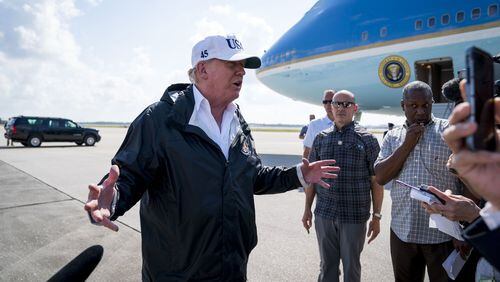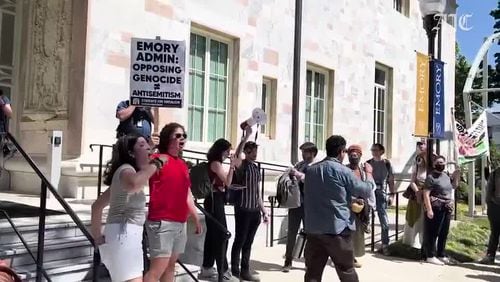The Trump administration late Sunday announced it is replacing its travel ban with a new proclamation barring visitors from eight countries, saying those nations are not doing enough to block criminals and terrorists from reaching the United States.
The result of a review of vetting procedures in nearly 200 countries, the new directive continues existing restrictions against Iran, Libya, Somalia, Syria and Yemen. And it adds new ones for Chad, North Korea and Venezuela, starting Oct. 18 and remaining in place indefinitely until they improve their cooperation and security practices.
Venezuela’s restrictions narrowly apply to that nation’s government officials who are responsible for traveler screening and those officials’ immediate relatives. Sudan fell off the original list of countries facing restrictions this year following a review by the Trump administration. Further, the new restrictions won’t apply to people who already hold U.S. visas.
“Following an extensive review by the Department of Homeland Security, we are taking action today to protect the safety and security of the American people by establishing a minimum security baseline for entry into the United States,” President Donald Trump said in a prepared statement. “We cannot afford to continue the failed policies of the past, which present an unacceptable danger to our country. My highest obligation is to ensure the safety and security of the American people, and in issuing this new travel order, I am fulfilling that sacred obligation.”
Signed Sunday, the proclamation could have a substantial impact on Atlanta, home to the world’s busiest airport as well as businesses and universities with international connections. With its many popular tourist spots, plentiful jobs, affordable housing and mass transit options, the Atlanta region has become a magnet for tourists and immigrants.
Atlanta airport officials said they were monitoring the situation. Operations at the airport appeared to be running smoothly early Sunday evening.
The Trump administration said it shared its new traveler security requirements with foreign governments in July and warned that those who fail to comply would face restrictions. They were given 50 days to make improvements. Some started sharing more information about terrorism threats and improved their reporting of lost and stolen passports. Others have “remained willfully non-compliant.”
The first version of Trump's travel ban — announced in January — sowed widespread confusion, triggered angry demonstrations in Atlanta and across the nation and ultimately stalled amid constitutional challenges. Trump replaced it in March with an order barring visitors from six Muslim-majority countries: Iran, Libya, Somalia, Sudan, Syria and Yemen. That provision was set to expire Sunday.
The ban also halted this nation’s refugee resettlement program, leading to staffing and budget cuts at Atlanta-area humanitarian agencies. Senior administration officials said Sunday they would announce plans for next fiscal year’s refugee resettlements in the coming days.
Like his original travel ban, Trump’s March 6 order drew court challenges. Trump has cast his travel restrictions as efforts to boost public safety, while his critics say they are driven by discrimination. The U.S. Supreme Court is scheduled to hear arguments about Trump’s March 6 travel ban on Oct. 10.
“This is an apparent effort to paper over the original sin of the Muslim ban, especially when just last week Trump said he wanted a ‘larger, tougher, more specific’ ban,’” Anthony Romero, the American Civil Liberties Union’s executive director, said Friday while anticipating Trump’s proclamation.
From June: U.S. Supreme Court reinstates key parts of Trump's travel ban
From June: Travel ban begins in Georgia, nationwide as guidelines draw fire
Walt Wallace — a traveler from Richmond, Va., who was traveling through Atlanta’s airport Sunday — said he understood the security issues involved in the travel ban. But he also said he was concerned about the impact on “people who are legitimately trying to come here… escaping persecution.”
Edward Ahmed Mitchell, executive director of Georgia chapter of the Council on American-Islamic Relations, said Friday his organization might send attorneys to the airport. Mitchell added that his organization will be watching to see if the restrictions are “motivated by legitimate concerns about national security, or are they motivated by anti-Muslim bigotry.”
“If the order only impacts people who do not already have visas to travel here, then nobody should be caught up at the airport,” Mitchell said. But, “if the order affects those already in transit like the first order did, then chaos could erupt and we’d need our attorneys at the airport.”
About the Author







